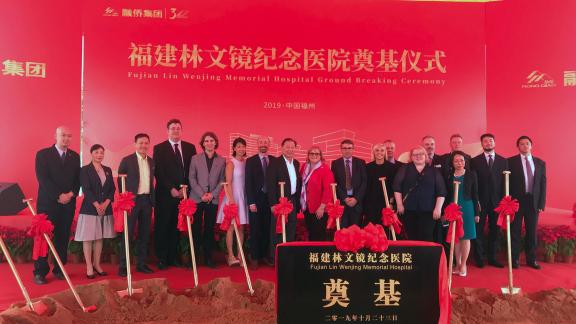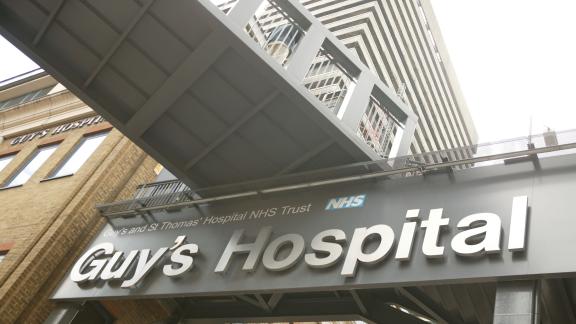The importance of commercial opportunities for the NHS

Our director of policy, Layla McCay, explains the gains that can be achieved in workforce development and organisational reputation through embarking on international commercial projects, and shares examples of where this has been achieved.
When I first joined the NHS Confederation as the then international director, I was charged with understanding what the NHS most wanted to achieve internationally in a post-Brexit world and how we could support our members to achieve their aspirations.
At that time our members sought support and representation of their interests on Brexit matters, on international recruitment, and on learning from international good practice. They still do. But I soon recognised that this was not the full picture. I learned that some of our members, NHS organisations across the system, also seek support and representation on a less obvious international topic that forms a key part of their operations: international commercial opportunities.
Exploring international opportunities
Across the world, healthcare planners, commissioners and providers often seek additional expertise and support to improve their services, deliver new developments and otherwise realise investments in their services. This can range in scope and scale from providing one-off consultancy contracts for a specific clinical protocol or learning module, up to long-term partnerships that could involve delivering large-scale education and training programmes, or even supporting the operational running of a facility. As one of the world’s leading health services, the NHS is in demand to help support these services, and many of our members are in a good position to explore these opportunities and secure significant mutual benefits.
That said, seizing these opportunities, bringing them to fruition and ensuring their value to the NHS is realised can be a complex undertaking. It usually involves the NHS organisation’s commercial team alongside wider commitment from organisational leadership, with the development of long-term strategies and often the hiring of skilled and experienced professionals. It may also involve working with relevant teams in NHS England and NHS Improvement, and with HealthcareUK and more widely the Department for International Trade, to help identify and secure and progress opportunities. It is common for many in the wider NHS at the start of these journeys not to be aware of how all these processes work, and how to secure the full range of potential benefits for the NHS. This means that we routinely fall into the common stereotype that anyone undertaking such a pursuit is in search of a single prize: money.
It's not just about money
Now clearly money is an important driving force in these endeavours. International commercial activity can offer a significant revenue stream for NHS organisations, enabling funds to be invested to support healthcare domestically. But, sustainable revenue can take a while to achieve with international activity, and to boil this down to money as the sole motivator in the NHS’s international commercial engagement would be naïve.
From a workforce perspective, international commercial work affords NHS organisations the opportunity to offer their staff unique and valuable personal and professional development experiences beyond what is available in the UK. Developing an international reputation can have a positive impact on research opportunities and recruitment pipelines. And from a national perspective, NHS engagement in this work can deliver intangible benefits via the health diplomacy and wider UK engagement associated with NHS representation in key locations overseas.
That these benefits are not widely recognised and leveraged is to some degree a fault of our own making. Misunderstandings around international commercial engagement has led to reticence in exploring how best to leverage opportunities, establish helpful systems, and learn from each other. Given the potential benefits to the NHS, this is something we need to change.
Examples of international commercial work in the NHS
To that end, our new series of examples from NHS organisations is an attempt to showcase the true purpose, complexity, variety and benefit that can be found from NHS organisations undertaking commercial work internationally, providing insight and learnings from those that have cut through the complexity to engage in this work for mutual benefit.
Ultimately, we hope that these examples can support NHS organisations in looking to their peers to understand some of the practical challenges and benefits that international work can bring to their organisation, including valuable experiences and insights on topics like governance processes to protect patients and staff; how the additional revenue is funding frontline services; and the myriad non-financial benefits being secured by NHS organisations and their staff that would be hard to access through traditional means.
The examples make clear that exporting as an NHS function is by no means easy. A successful approach cannot be a whim; it requires sizeable time commitments and an appetite for some risk, so it may not be right for everyone. However, in a constrained financial environment, and with ever-increasing competition for the best professionals, the opportunity to make the marginal gains offered by this work has the potential to reap significant rewards. As we face down the effects of COVID-19, these are gains we need more than ever.
Layla McCay is director of policy at the NHS Confederation. Follow her on Twitter @LaylaMcCay



